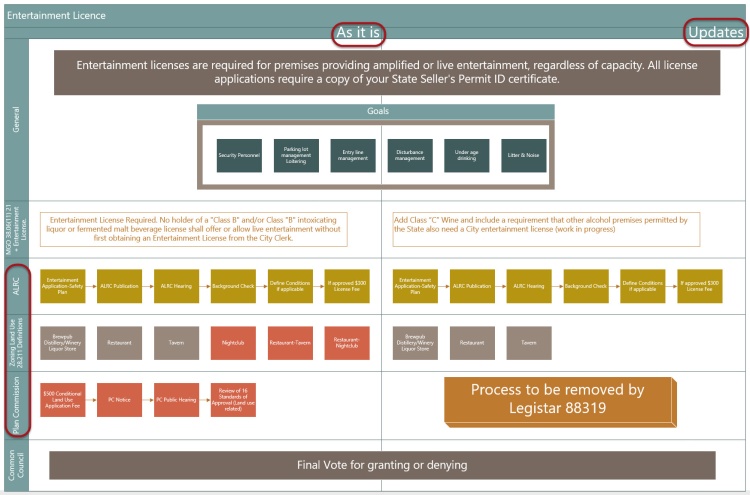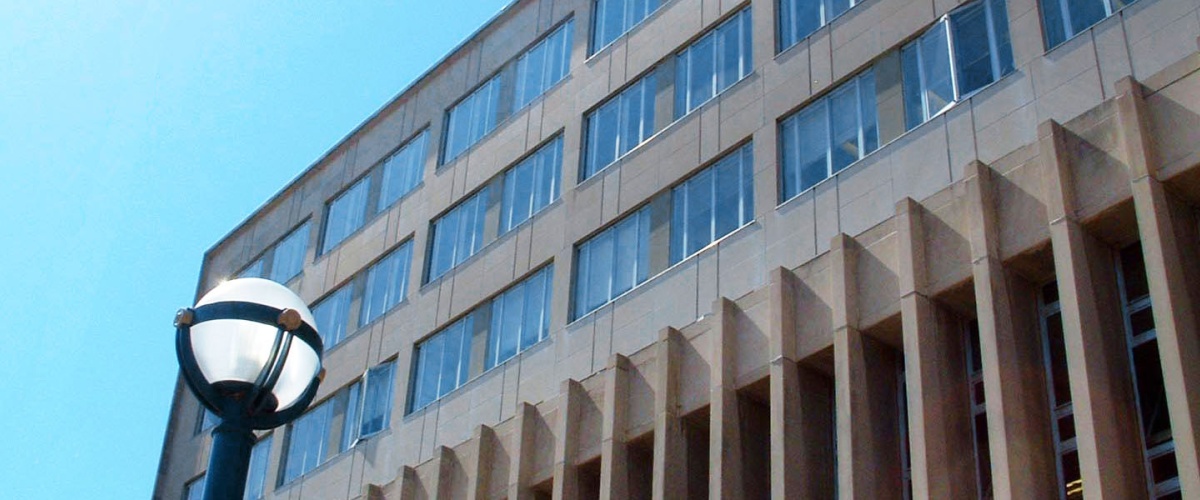Entertainment License Process Update
postedPremises with a Class B++ license must obtain an Entertainment license to provide amplified or live entertainment. To request this license, the applicant must complete a form and submit it to the Alcohol License Review Committee (ALRC). This form outlines safety goals that the ALRC will review. I usually communicate to my applicants that this form should be treated as a Standard Operating Procedure, ensuring it contains clear steps to address various safety scenarios. Once the license is approved, I recommend sharing the completed form with their staff members.
The ALRC process includes a public notice detailing the public hearing. During this process, the ALRC reviews the form with the applicant and may impose conditions on the Entertainment License, such as managing indoor music hours, ensuring security, and preventing underage drinking. After review, a recommendation is sent to the Council for final approval, where the community can provide additional input. If the Council grants the license, the applicant must stop by the clerk's office to pay a $300 fee and receive their official documentation.
While the process seems straightforward, additional unnecessary steps complicate it, particularly for non-English speakers.
Today, applicants must also stop at the Plan Commission to secure a Conditional Use Permit. To do this, they must complete the land use application form and pay a non-refundable $500 fee to be added to the public hearing schedule with the Plan Commission. This requirement was introduced in 2014 to provide greater oversight in approving new businesses serving alcohol after the Alcohol License Density Ordinance was repealed. However, in the years since this change, both Alders and City staff have recognized that the additional approvals can be confusing for local business owners, who may not realize they also need a Conditional Use Permit from the Plan Commission. This extra approval process adds costs regarding application fees, business owners' time commitment, staff, and commissioners' resources. Furthermore, since the change, there have been no conflicts between the decisions made by the ALRC and the Plan Commission.
Streamlining this process reinforces our commitment to a diverse economic development force, eliminating duplication and maximizing staff and the Plan Commission Board resources. Eliminating the Plan Commission step requires updates to the Zoning Land Use 28.211 Definitions and use tables. Legistar 88319 contains all the changes to the zoning tables and the definitions. A summary of the definition changes is also included with the legislative file.
++Additional changes are underway for MGO 38.06(11) to include all types of alcohol licenses, not just Class B, in entertainment license requests.
Current process and updates, click here for PDF file.


